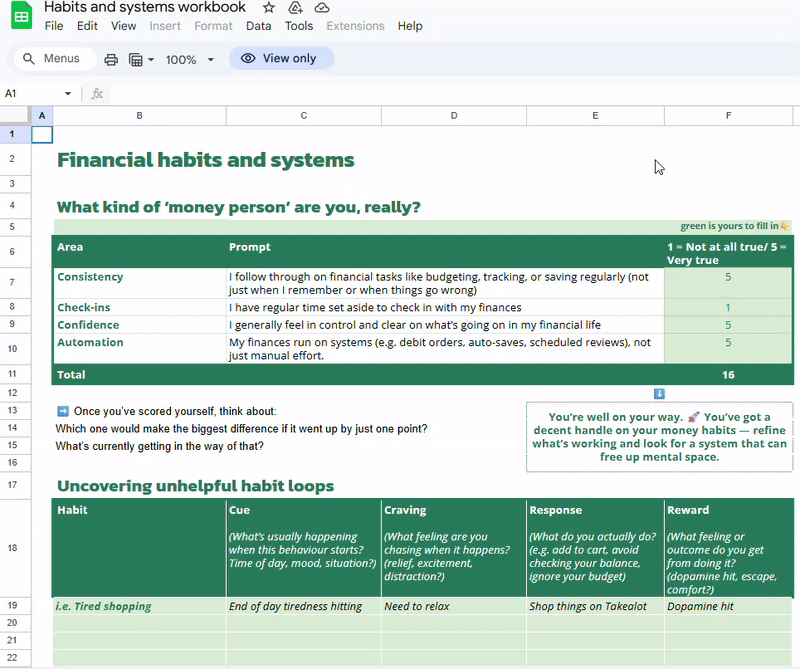Help your people feel in control of their money and bring focus back to work
Financial stress hurts focus and retention. Help your people build better money habits privately, practically and without adding to HR workloads.
For most leaders, financial stress is something that stays off the agenda. It feels personal. It feels awkward. It doesn’t show up in engagement dashboards or performance reports, so it rarely gets airtime in leadership meetings. Yet, when you look closely, the signs are everywhere, and the cost to your business is very real.
Why financial stress is so rarely addressed
Managers often hesitate to raise the topic. They worry it might be seen as intrusive, or that they’ll open a conversation they are not equipped to handle. Employees, on the other hand, often feel that admitting to financial worries would make them appear less capable or less professional. The result is a mutual silence that allows the problem to grow unnoticed.
That silence does not mean the issue is small. In our Financial Stress Survey, we found that almost half of employees have a side hustle or are thinking of starting one; not because they are driven by passion, but because they feel they need to.
67% percent told us that money stress affects how they feel about their job and whether they stay in their role.
These are not marginal issues. They go to the heart of retention, focus and performance.
The impact on your organisation
Financial stress does not stay at home when someone walks through your doors. It erodes focus and energy. It shapes decisions. It makes talented people more likely to look elsewhere. Over time, that costs you through lower productivity, higher turnover and a workforce that feels less steady and less engaged than it could be.
If you want to create an environment where people do their best work, you cannot ignore this. The challenge is doing something about it without crossing personal boundaries or creating more work for your HR team.
What leaders can do without overstepping
Supporting your team’s financial well-being does not mean telling people how to manage their money. It is about giving them the space and tools to build their own systems and habits. Quietly, privately and on their own terms.
Start with principles that work regardless of which tools you choose to provide:
- Acknowledge that financial well-being matters. Include it in your broader wellbeing communications so it is not treated as a taboo subject.
- Offer resources that are optional and private. People need to feel they can explore these tools without reporting back or feeling judged.
Here are some we’ve created as part of our Financial Freedom Programme and made available for free self-reflection:
Get a copy of the Wealthbit Habits Workbook, it’s part of the Financial Freedom Programme, where we help teams stress less about money and build smarter systems.
- Focus on behaviours, not advice. The shift comes from helping people notice patterns and build new habits, not from more generic tips.
- Integrate, don’t isolate. Financial well-being should sit alongside mental, physical and career well-being as part of a holistic culture.
Why advice doesn’t change behaviour
Most people already know the basics. They know they should save more. They know they should plan ahead. They’ve heard the budgeting tips. But information on its own doesn’t translate into action.
What makes the real difference is how those insights are lived out, the habits people build around their money. Habits turn good intentions into daily systems. They help people act even when they’re tired, distracted, or under pressure.
An example from the Financial Freedom Programme
Within our Financial Freedom Programme, we have created a range of tools designed around these principles. One of them is the Wealthbit Habits Workbook. It is a practical guide that helps people spot where they are stuck in intention rather than action, test new approaches in small steps, and build systems that work for their real lives.

These tools are examples, not the only way to act. The important thing is to provide something concrete that respects privacy and encourages change at a behavioural level rather than simply offering more information.
When you support your team in building stronger financial habits, you’re not just handing out tips. You’re creating a framework for real behavioural change. And that shift reduces stress, builds confidence, and frees up focus for the work that matters.
Taking the first step
You do not need to overhaul your entire benefits programme to make a difference. Start small. Bring financial well-being into the conversation. Curate or create a simple resource your people can explore privately. Connect them to tools, whether your own or external ones like these from Wealthbit, that help them build confidence and consistency in their financial lives.
When you do, you remove one layer of hidden stress from your team’s day‑to‑day reality. You create headspace and focus. And over time, you build a culture where people feel supported not just as employees but as human beings who want to do great work without carrying avoidable financial weight.
Sign up for Wealthbit’s Money Systems newsletter and make financial freedom simple.
